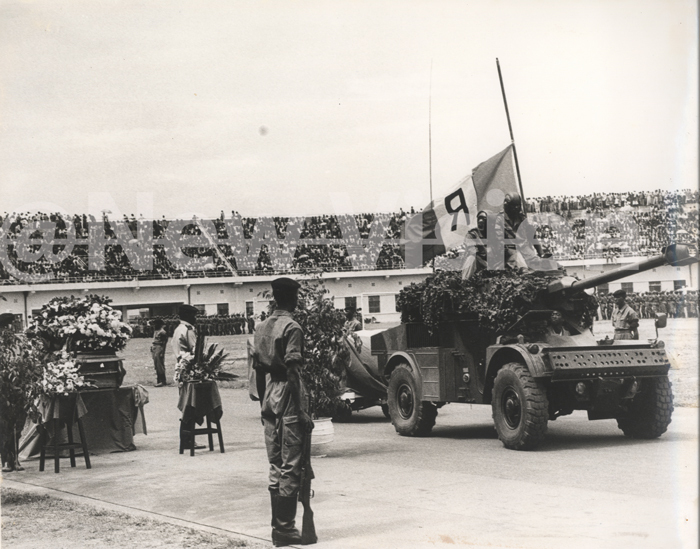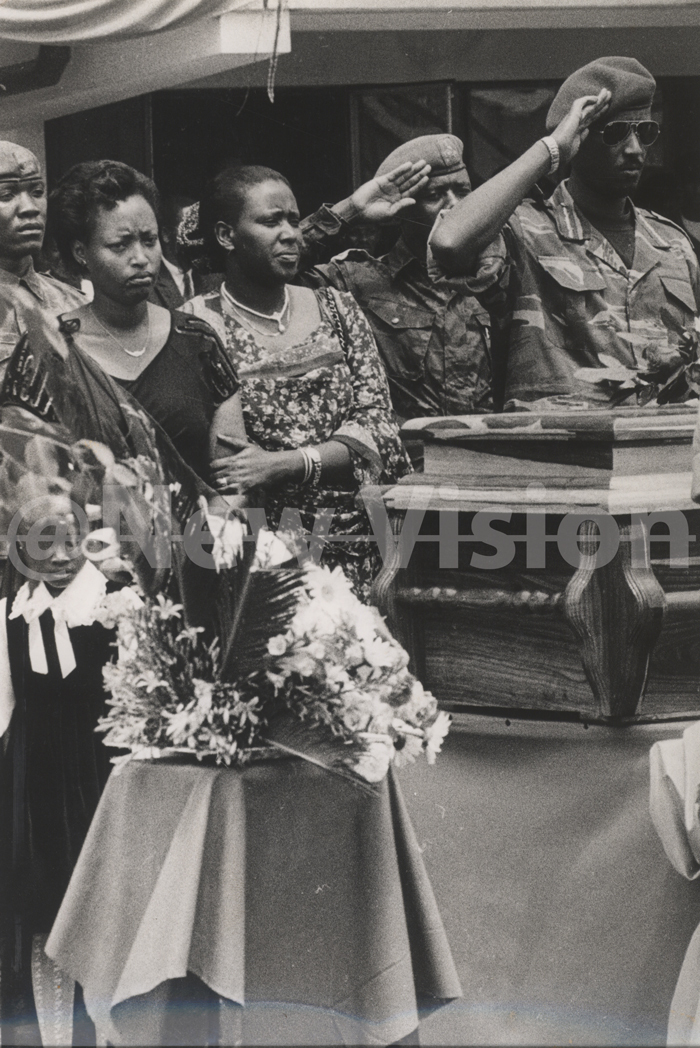Today In History: Rwigyema is killed
The manner in which Maj. Gen. Fred Rwigyema was killed had two versions. The first version stated that on the second day of the invasion, Rwigyema was shot dead by a Rwandan army sniper. But the truth as it came out later was that the general was killed by his own juniors.
RWIGYEMA|TODAY IN HISTORY
Rwigyema's life was, however, cut short on the second day (October 2, 1990) of the Rwanda Patriotic Front (RPF) liberation war against the regime of Juvenal Habyarimana.
Reports said on the second day of the 1990 RPF offensive, Rwigyema was murdered by two of his sub-commanders. However, the death was kept under wraps until a month later in November.
He had called a staff meeting with three close associates - Peter Bayingana, Chris Bunyenyezi, and Stephen Ndugute. During the meeting, a fierce argument over strategy developed. Rwigyema wanted to advance slowly in order to politicise the Hutu peasantry and get them to joint the RPF.
Bayingana and Bunyenyezi wanted to seize power quickly, ignoring the Tutsi-Hutu divide.
The dispute heated up and one of the sub-commanders reportedly drew his pistol and shot Rwigyema in the head.

In the resultant chaos, Ndugute escaped and returned to Uganda to inform President Museveni of the events. Museveni, in turn, sent Salim Saleh to Rwanda, where he found Rwigyema's body in a swamp where he gave it a proper burial. Rwigyema's remains were buried in Kagitumba until the war ended when they were reburied in the Remera Heroes Cemetery.
Major General Fred Gisa Rwigyema had cut his teeth as a fearless soldier. It was not surprising that because of this, the Front for National Salvation (FRONASA) leader, Yoweri Museveni, selected him as one of his bodyguards. He rose through the ranks as one of the best NRA field commanders and than just four years after NRA captured power, he decided that it was time to go back to his home country, Rwanda.
Background
Fred Rwigyema was born on April 10, 1957, in Mukiranze village, Kamonyi district in the south of Rwanda. A Tutsi, in 1960, he and his family fled to Uganda and settled in a refugee camp at Nshungerezi, Ankole, following the Hutu revolt of 1959 and the ousting of King Kigeli V Ndahindurwa.
After completing high school in 1976, he went to Tanzania and joined the FRONASA, a rebel group headed by President Yoweri Museveni, the brother of Rwigyema's best friend, Salim Saleh.

Later that year, he travelled to Mozambique to the Front for the Liberation of Mozambique rebels who were fighting for independence from Portugal.
A commander to remember Fred Rwigyema, like Saleh, was a dare-devil fighter. Janet Museveni witnessed one of Rwigyema's heroic acts when Rwigyema, Saleh and several other young fighters rescued them from a Uganda National Liberation Army road-block in 1980. "...Saleh, Rwigyema and the others jumped out of the car with there weapons cocked..," Janet recounted in her book, My Life's Story. The rescue was over in a few minutes, leaving the soldiers at the roadblock be wilded!